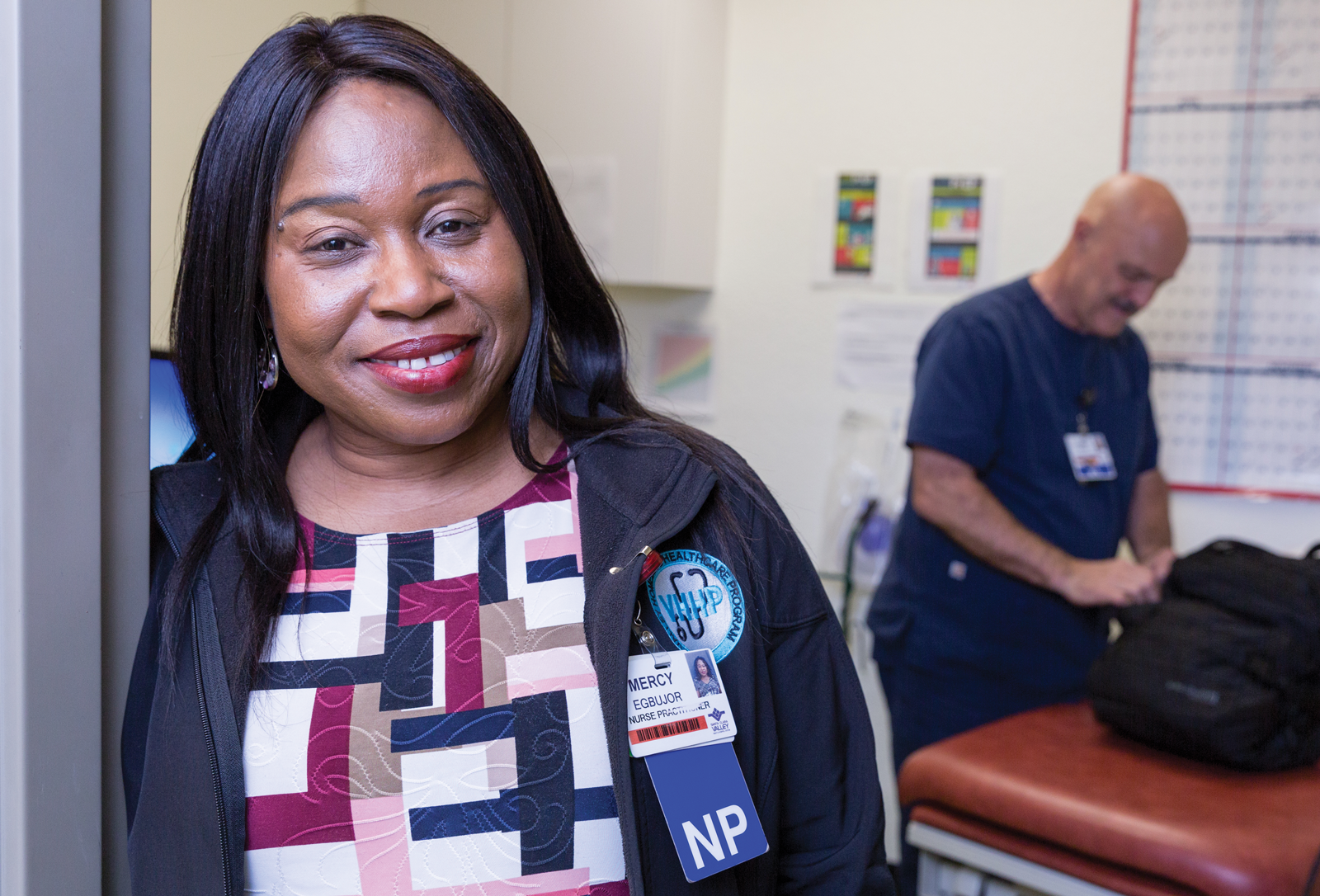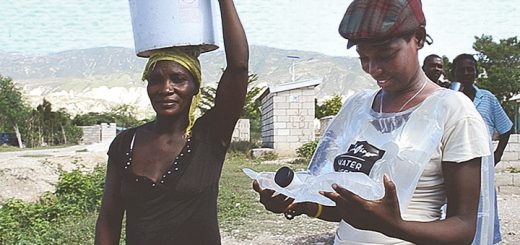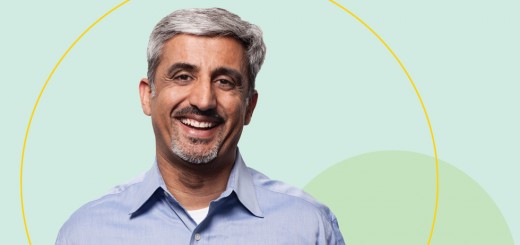Witnessing Mercy: Delivering Health Care and Dignity to San Jose’s Homeless

Photo: David Schmitz
“I believe every human being has dignity, has rights. We’re not all going to be rich, but we should all have a place where we can sleep at night.”
In the Nigerian village of Umuoye Enyiogugu, Mbaise, where Mercy Egbujor grew up, nobody ever talked about the ending the scourge of homelessness. There wasn’t any. “Everybody had a mud house,” she says.
It wasn’t until she moved to Silicon Valley in 1984—where some of the most expensive real estate on the planet was being gobbled up by free-range billionaires—that Egbujor, ’88 TV-Radio-Film, ’14 DNP, encountered people living on sidewalks and under bridges. “It was a very big shock for me,” she says. “I used to cry a lot. I remember I would say, ‘This is the United States! Nobody should be outside.’”
In 1998, as the creek beds that encircle San Jose’s downtown were being transformed into a moat of misery by a rapidly rising homeless population, Mercy arrived at the Valley Homeless Healthcare clinic as a student nurse practitioner for her first rotation. She never left. “I felt like I was home,” she says. In 2014, she officially became “Dr. Mercy,” creating a backpack medicine unit—that she continues to lead—as her doctoral thesis for San Jose State’s inaugural Doctor of Nursing Practice Program (DNP).
If ever a name was prophecy, surely it was Mercy. At times, she has proved powerless to resist the destiny it has chosen for her. Her 10 brothers and sisters all were given conventional names, like Daniel and Beatrice, but “Mercy” suited her so perfectly that most of her homeless patients don’t realize she has another name. “Oh, Mercy,” they would say, repeating her name like a prayer, “you are so kind. Mercy, you are so nice. Your mother must have known you were going to be a nurse.”
Actually, nursing was a surprise, especially to Mercy, who attended San Jose State intent on becoming a journalist. To cover school expenses, she had taken a job as a nurse’s aide, emptying bedpans and decoding dementia at a nursing home, and only months from graduation, she realized she had stumbled upon her true calling.
Another decade of training led to a master’s degree and work as a nurse practitioner at a clinic, where Mercy first encountered the subtle shrug of institutional disregard for the homeless. Patients recovering from surgery were sometimes driven from Valley Medical Center to encampments with names like Jurassic Park, Narnia and—most notoriously—the Jungle, where they were discharged, literally, into the wild.
“It used to kill my spirit, knowing that somebody was homeless and I’m going to send them out to the street,” Mercy says. “It just didn’t sit right with my conscience. I believe every human being has dignity, has rights. We’re not all going to be rich, but we should all have a place where we can sleep at night.”
Monica Hyatt spent several years living in the Jungle, which was believed to be America’s largest homeless encampment, before the city of San Jose shut it down in 2014. When the Valley Homeless Healthcare medical team made weekly visits to a parking area near the Jungle, Hyatt refused to see them. So the backpack team, led by Mercy, descended into the hellscape of tents and tarps, where they found Hyatt in precarious shape.

Photo: David Schmitz

Photo: David Schmitz

Photo: David Schmitz
“I had a bad cough for two years, but I wasn’t on my medication, I was drinking, and I wasn’t taking care of myself or my diabetes,” Hyatt recalls. “Doctor Mercy saved my life.”
Among the chronically homeless, she is widely seen as an angel of mercy. “As a provider, once in a while you’ll hear people say that you saved their life,” says Dr. Sara Doorley, director of the homeless program at Valley Medical Center. “But the number of patients I hear say that about Mercy is incredible.”
Every Friday—rain or shine—she leads the backpack medical team on its rounds in a battered van, frequently descending into hidden camps where unsanitary conditions provide a breeding ground for diseases such as tuberculosis and hepatitis. “The patients that she sees on the streets often don’t trust the system, and haven’t had a great experience with health care providers,” Doorley says. “These are the most vulnerable in our communities, people who have multiple barriers to accessing care in a clinic-based health care system.”
In the sterile environment of a clinic, a homeless person often feels shabby, dirty and unwelcome. “Unfortunately, homeless people have sometimes had an experience with the health care system where they felt judged or responded to harshly,” Doorley says. That makes every outreach to the families living in their cars and the mentally ill trying to survive on the streets an exercise in building trust. “Sometimes when we pull up,” says Mark Block, a nurse who has worked on the backpack team for more than four years, “we see our patients literally running in the opposite direction.”
On a recent Friday morning, the backpack team pulled up to a corner in an industrial area next to Central Concrete, and from the rusted hulks of ancient RVs clustered at a nearby railroad siding, one-by-one, four patients warily approached the van. One man says he was in prison for 15 years, and refused surgery for his back pain, explaining, “I don’t trust them to wake me up.” He says he’s been homeless for 12 years, since his wife died at 31. The man says he drinks four pints of whisky a day, at which Mercy gently reminds him that this will not help his Hepatitis C.
“It’s not all about giving people medicine,” Mercy says after he leaves. “We do a lot of counseling because a lot of people who are homeless have mental health issues that are undiagnosed, and frequently they are self-treating with drugs and alcohol. The most important thing is to be authentic. If they don’t trust you, they’re not going to talk to you.”
She spends more time with each patient than a clinical physician would—or could, her approach at odds with the often depersonalized medicine practiced today. A patient named Dave tells her he drinks vodka to stay warm every time he wakes up at night. Mercy laughs at his jokes, and gently fends off a flirtation, assuring the man she is happily married. As he is about to leave, Dave mentions that his father drove a truck for Central Concrete for 32 years.
Amid all the merriment of their exchange, Mercy has extracted useful diagnostic information. One of the men she examined asked her to call his mom and tell her what, if anything, was wrong with him. Another asked her to call his sister. “Sometimes their medical literacy is not very good,” she says. She believes Dave was unaware of the possible consequences of drinking while he has Hepatitis C. “The other gentleman didn’t know that he has Hep C,” Mercy explains, “and he’s also drinking a lot. Sometimes that happens. People get blood tests done and they don’t go back to the clinic to get the results.”
At another stop in downtown San Jose, Mercy talks to a transgender woman named Michelle, who is wearing a white turban fashioned out of a T-shirt. “I need a lotta help, honey,” Michelle tells her, while nearby Block is drawing blood from Michelle’s boyfriend of more than three decades. They became homeless five years ago, when rents in Oakland became unaffordable.
“She’s the kind of person who goes all the way with her patients, the kind of nurse that never gives up.”
Mercy became so frustrated seeing surgical patients dropped off in wheelchairs at homeless shelters that she and a doctor at Valley Medical created the hospital’s Respite Center. There, patients who can no longer occupy a hospital bed, but who still need a safe place to recuperate, can recover in peace. “She’s the kind of person who goes all the way with her patients, the kind of nurse that never gives up,” says Sandy Couser, ’80 MS Nursing, who taught the statewide nurse practitioner program from which Mercy earned her master’s degree.
Couser was so sure her star student had the wealth of compassion she would need to help the homeless, she hired her at Valley Medical. That was 16 years ago, during which time the homeless population in San Jose has grown alarmingly. Worried that people who were just trying to survive from one day to the next wouldn’t seek medical care at her clinic, Mercy returned to San Jose State as part of the first Doctor of Nursing Practice cohort. In 2014, she became Mercy Egbujor, DNP.
“I used to feel guilty when my patients called me Doctor Mercy because I’m not a medical doctor,” she says. “But now I have a doctorate degree, so I earned that title. I don’t correct anybody anymore.” She chose “street medicine” as her doctorate project, further refining an idea that was being tried in other cities by moving her practice into the hidden places that required a backpack to reach. “That changed my life,” Mercy says. “We do backpack medicine now because it was my project at San Jose State.”
The backpack is almost always a more practical choice than carrying a purse as she makes her rounds, and during a visit to a rough neighborhood several years ago, Mercy decided to leave her purse in the car. When she returned, the car had been broken into and the purse was gone. She is such a beloved—and protected—figure on the streets that word immediately went out that the purse, and everything in it, must be returned. “Within a two-week time period,” recalls Doorley, “her purse was sent back to the hospital, with a note inside that said, ‘So sorry Doc Mercy.’”
She treats every type of illness—physical, mental, and emotional—sometimes without ever opening her backpack, offering just a kind word or a dose of encouragement. The disease rampant in her own profession—compassion fatigue—has never affected her. “I think it’s because the job is not finished,” she says. “I don’t know if it will ever be finished in my lifetime. But until the work is done, I will keep going.”




Wow! Amazing story. Very well written. It brought tears to my eyes to read about what good Mercy is doing for our community. Congratulations on getting your DNP!